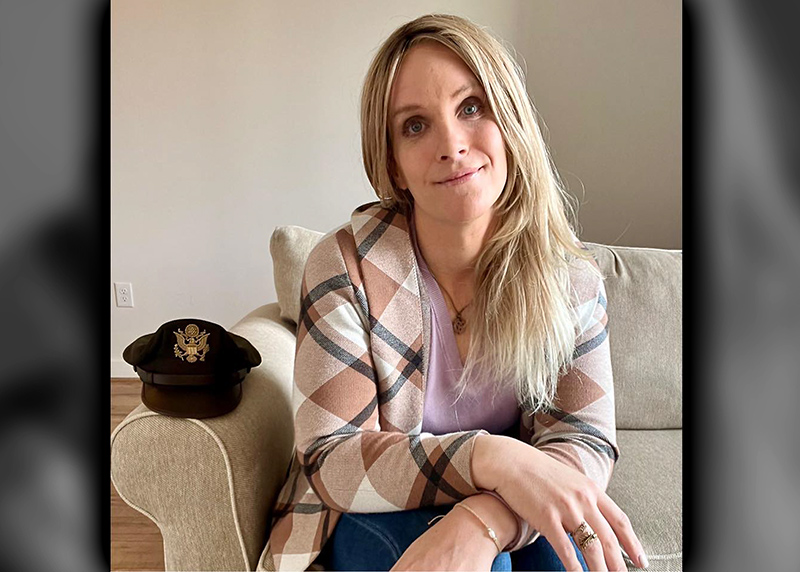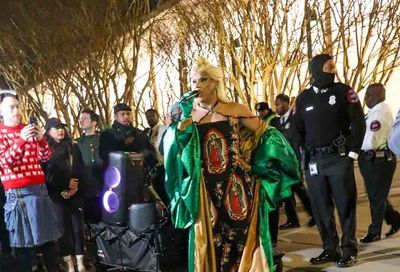U.S. Declares Monkeypox a National Health Emergency
Monkeypox represents a significant risk to Americans and allows public health officials to adopt measures to contain it.

The United States has declared the growing monkeypox outbreak a national health emergency.
The rare designation signals that monkeypox now represents a significant risk to all Americans and allows public health officials to adopt measures to contain the virus.
“We’re prepared to take our response to the next level in addressing this virus, and we urge every American to take monkeypox seriously,” Secretary of Health and Human Services Xavier Becerra said in a press briefing on Thursday afternoon, reported The New York Times.
The declaration by HHS comes more than a week after the World Health Organization declared the outbreak to be a global health emergency, due, in part, to the ease by which the disease spreads.
By designating the outbreak as a national health emergency, federal agencies are now able to direct money towards developing vaccines and drugs designed to prevent transmission of the virus or treat those already infected, access emergency funding, and hire additional workers to respond to the outbreak.
The Biden administration has faced criticism over the dearth of available monkeypox vaccines, even as the number of confirmed cases has exceeded 6,600 nationally.
Several localities, including the District of Columbia, have begun rationing vaccine supplies, seeking to get as many people as possible vaccinated with the first of two shots while postponing the second shot, in the hopes that the first dose will provide enough protection against the virus for up to six months.
Typically, the Jynneos smallpox vaccine, the primary vaccine being used to ward off monkeypox, is given in two doses, with a one-month waiting period in between. Full immunity does not take effect until two weeks after the second shot is administered.
According to the Times, the White House claims it has made more than 1.1 million doses of Jynneos available and has been able to increase testing capacity to 80,000 tests per week.
While declaring the outbreak a national health emergency would not ease the shortage of vaccines, it will allow the federal government to take steps to allow easier access to tecovirimat (TPOXX), the drug used to treat those already infected.
Declaring monkeypox an emergency sends “a strong message that this is important, that it must be dealt with now,” said Anne Rimoin, an epidemiologist at the University of California, Los Angeles, and a member of the W.H.O.’s advisory panel on monkeypox.
Earlier this week, President Biden named a veteran emergency response official and an infectious disease specialist as coordinator and deputy coordinator of the U.S. outbreak, a sign that critics saw as a stepping stone to Thursday’s declaration of a national health emergency.
Monkeypox is transmitted mostly during close physical contact. The infection is rarely fatal — no deaths have been reported in the United States — but can be very painful.
The United States now has among the highest rates of monkeypox infection in the world, and the number is expected to rise as surveillance and testing improve.
Support Metro Weekly’s Journalism
These are challenging times for news organizations. And yet it’s crucial we stay active and provide vital resources and information to both our local readers and the world. So won’t you please take a moment and consider supporting Metro Weekly with a membership? For as little as $5 a month, you can help ensure Metro Weekly magazine and MetroWeekly.com remain free, viable resources as we provide the best, most diverse, culturally-resonant LGBTQ coverage in both the D.C. region and around the world. Memberships come with exclusive perks and discounts, your own personal digital delivery of each week’s magazine (and an archive), access to our Member's Lounge when it launches this fall, and exclusive members-only items like Metro Weekly Membership Mugs and Tote Bags! Check out all our membership levels here and please join us today!





















You must be logged in to post a comment.